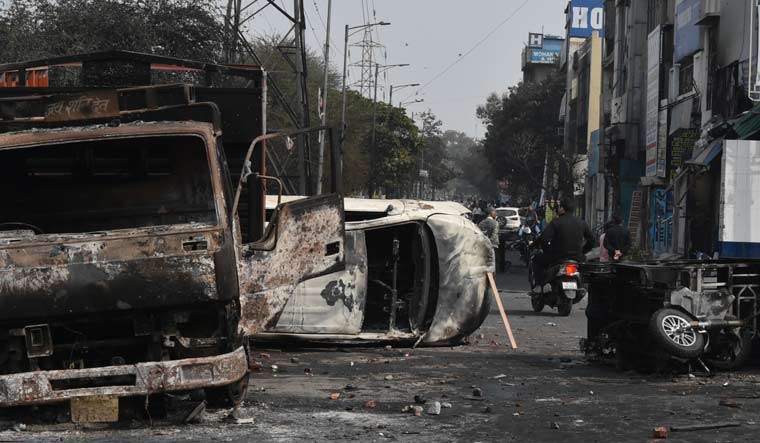Delhi boasts of two gates of blood—one Khooni Darwaza at the spot from where Nadir Shah ordered a massacre of the citizens, and another at the spot where the last three Mughal princes were shot in cold blood by a cowardly colonel in 1858. But the city sports several hundred more spots where alarms of struggle and flight have been heard and where ignorant armies have clashed by night.
One doesn't have to go deep into Delhi's past, the story of which has been writ in gore. After Partition, the saga of which was also writ in blood, there have been frequent riots, clashes and communal onslaughts in the city—the bloodiest being the massacre of more than 2,800 Sikhs in the wake of the assassination of Indira Gandhi in 1984.
Perhaps the 1984 pogrom shook the conscience of the city. Since then, riots of communal nature have been few and infrequent. Here are the exceptions, though:
also read
- Citizenship Act: SC's verdict upholding section 6A poses serious challenge to CAA
- SC in majority verdict upholds validity of section 6A of Citizenship Act, recognises Assam Accord
- Congress ally IUML to approach SC, EC against Centre granting citizenship under CAA
- Will not implement Uniform Civil Code, CAA and NRC in West Bengal: CM Mamata
- CAA a major poll issue for AAP in Assam: Atishi
May 1987:
As rumours about the communal massacre in Meerut-Maliana in neighbouring Uttar Pradesh spread, protests broke out in Delhi. The murder of the imam of a mosque in Hauz Khas, led to riots in which 15 were killed—12 were shot dead by the police.
November 1990:
Following the attack on Babri Masjid, during the first kar seva stand-off, a peace march by one community was attacked. Ten persons were killed in the ensuing clashes.
December 1992:
The demolition of the Babri Masjid led to riots in several parts of India. Violence broke out in Seelampur and Jaffrabad following a rumour that a local mosque had also been attacked. About 20 persons were killed, most of them burned to death or hit by police bullets. A PUCL report blamed the police for instigating violence, and indiscriminate firing.
October 2014:
A drunken brawl over the use of loudspeakers in a shrine on a Diwali eve night led to violent clashes between two communities in Trilokpuri. Shops and vehicles were burnt, several injured. Timely intervention by the police ensured that no lives were lost.


